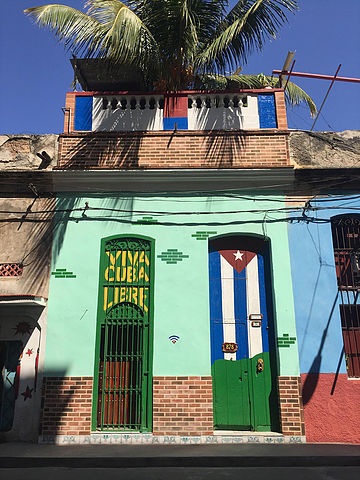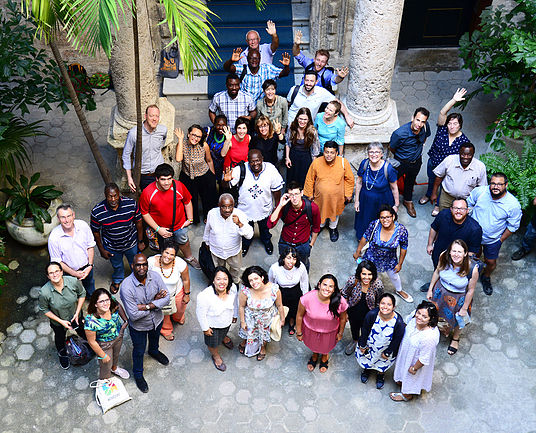Lessons from Havana: Reflections on KNOW’s Second Annual Meeting
This blog by Christopher Yap has been reposted from the Knowledge in Action for Urban Equality (KNOW) website. All images are by David Heymann.

We know cities are unequal places.
The global GINI Index describes decreasing inequality over the past twenty years. But this doesn’t tell the whole story. On one hand, global statistics can hide important variations within and between cities, countries, and demographics. On the other hand, inequality has multiple dimensions that measurements focused on economic conditions and household income can’t capture.
The Knowledge in Action for Urban Equality (KNOW) project began with the idea that a more equal city not only has less inequality but is also more socially and environmentally just; a more equal city has a fairer distribution of resources, reciprocal recognition between diverse groups, and more equal opportunity to participate in the decisions that govern urban life.
In February 2019, over forty members of the KNOW project team, from eleven countries around the world, met in Havana, Cuba, for a week of discussion, planning, and co-production. Havana provided a vivid and thought-provoking context for our discussions on issues of urban equality; its history and distinct socio-economic trajectory are written into the architectural fabric of the city. The aim of the week was to share the work that has emerged across the first year of the KNOW project and to create collective spaces for reflection and exchange, drawing on the breadth of knowledge and experience across the team.
It is not possible to capture here the richness of the discussions that took place across the week. But some common themes did emerge. The first was that there are multiple, intersecting, and interdependent relationships between poverty, prosperity, resilience, and urban equality, the concepts at the heart of the KNOW project. Moreover, these relationships manifest in myriad ways across the KNOW cities. However, rather than accept these concepts as abstract or immutable, it is important to engage critically about where they come from, how they have been used, and by whom. This is particularly important in the context of planning education.

The second, drawing on Prof Caren Levy’s ‘Web of Institutionalisation’ (1996), we recognised that pathways to urban equality can begin from a variety of places or processes; they can be instigated by citizens, policy-makers, or academics, amongst other urban actors. Pathways to urban equality can be linear, reciprocal, or cyclical; they can emerge trans-locally and at multiple scales. What this approach shows us is that no single set of actors, or sector, or place can realise urban equality alone. The challenge is to connect the different actors and processes in a way that builds lasting momentum towards more equal forms of urban development.
The third was the close relationship between capacity-building and the ethics of research practice. One of the central objectives of the KNOW project is to build capacity for research on urban equality in the UK and KNOW partner cities. Discussions throughout the week brought to light some of the challenges and opportunities of knowledge co-production as well as the specific ethics of research practice necessary for addressing issues of urban equality in cities of the global South.
The week also featured the opening of a public exhibition celebrating Havana’s 500th anniversary, curated by KNOW City-partner Prof Jorge Peña Diaz at the Instituto Superior Politécnico José Antonio Echeverría (CUJAE). We also held the seventh event in the KNOW project’s Dialogues in Urban Equality series that brought together Ricardo Núñez Fernández, Prof Henrietta Moore, Prof Jorge Peña Díaz, and Maya Espriña Prieto to discuss the challenge of urban equality and prosperity in Havana (images above).
After Havana, we returned to our home cities with a renewed sense of the significance, and the urgency, of the challenge to make cities more equal. Perhaps more important than the direct outcomes of the workshop, was the opportunity to share a space with a group of researchers from around the world dedicated to the idea of urban equality. For us, as a team entering its second year, it was a leap forward. It is only through such learning and exchange that we can build pathways to fairer and more equal cities.
Stay in the KNOW by joining the Knowledge in Action for Urban Equality Urban-KNOW mailing list to receive our latest news, project updates, and more. Subscribe online at: www.urban-know.com/subscribe